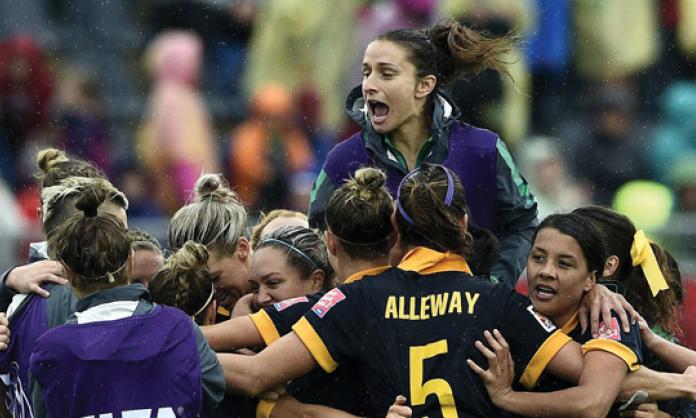The Matildas made history as the first Australian national sports team ever to go on strike. They are also the best performing soccer team Australia has ever had. Yet these female professional athletes have only ever been paid less than the minimum wage, and are regularly asked to train full time while receiving a measly part time wage.
One player, Teresa Polias, was forced to take unpaid leave from her regular job as a primary school teacher in order to prepare for the recent World Cup. Former player Joey Peters described on ABC radio how, during her time as vice captain of the national team, she queued at Centrelink for basic payments and took casual jobs cleaning toilets.
“We’re not asking for millions of dollars”, Polias told the ABC. “We’re asking for minimum wage, to sustain our lives off the pitch to do well on it. It’s as simple as that.”
In September, the players refused to take part in a tour of the US. Despite strident calls from the game’s governing body, Football Federation Australia (FFA), they did not get on the plane.
The players’ representatives have met with the FFA more than 30 times this year in an attempt to negotiate a new collective agreement. The FFA bosses argued that any increase in the women’s pay would come at the expense of male players’ wages. It was only when they went on strike that things began to shift.
After nearly a month of cancelled fixtures, the FFA finally offered an interim deal that will increase the women’s wages to a minimum of $33,000 or $40,000 for tier one players – a pay rise of almost 60 percent.
Their resistance and determination has attracted admiration and support from professional athletes in other codes, as well as their male counterparts in the A-league. Melbourne Victory star Besart Berisha said: “It’s a shame because the women get nothing and we get everything. It doesn’t make sense … It’s not nice what happened with the Matildas; I can understand them and I’m behind them too”.
Players in the women’s domestic W-league have also been inspired by the national team’s actions and have been planning their own negotiations and potential industrial campaign in the coming months.









